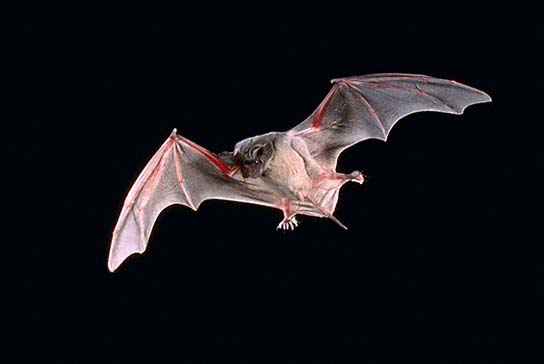Bats conservationist are magnanimous in saying that bats are not creepy worthless creatures. They make up to a nearly 1000 species which make up of one fourth of earth mammal’s populace.
New research have shown that they’re better friends to humans in the control of agricultural pests than anyone can imagine. A group of 150 big brown bats can easily consume 600,000 cucumber beetles, if which if allowed to lay eggs, could produce 33 million root worms, a serious agricultural pests to overcome by farmers.
A Texas based Bat Conservation International (BCI) has sponsored a cultural study where they identify some 300 plant species worldwide that need bats for propagation. From these plants, roughly 450 commercial products are made at annual value of hundreds million of dollars.
Despite the benefits that we derived from these creatures, the world’s bat population is severely threatened. In North America more than 50% of the 45 known bat species are either listed as endangered or in alarming decline, making them one of the continent’s most rapidly disappearing mammals. Losing them could have a serious ecological and economic consequences according to bat conservationists.
Due to bad press and fear of some people millions of bats killed each year. In the US alone, millions of dollars a year were being spent to kill bats which has contributed to their dwindling population.
For the fearing public who associated probably their fear from myths that bats can get entangled in people’s hair or a Dracula myth a vampire who could transform himself into a bat or carriers of rabies made conservationist persuading the public thinking about bats has been an uphill battle.
The campaign of the bat conservationist to change the bad public perception about bats had been pursued by them through proper education. The struggle to save endangered bats from extinction had only just began.
In Asian countries, people have traditionally viewed bats as harbingers of good, this belief could have arisen when farmers thousands of years ago saw bats eating insects that prey on plants. There are also some species of some bats that prey on mosquitoes, there are the cave nectar bats that assist in pollination that feed on mangrove, jack fruit, mango, banana and other tropical fruits.
Bat manure known as guano are good source of organic fertilizer.
